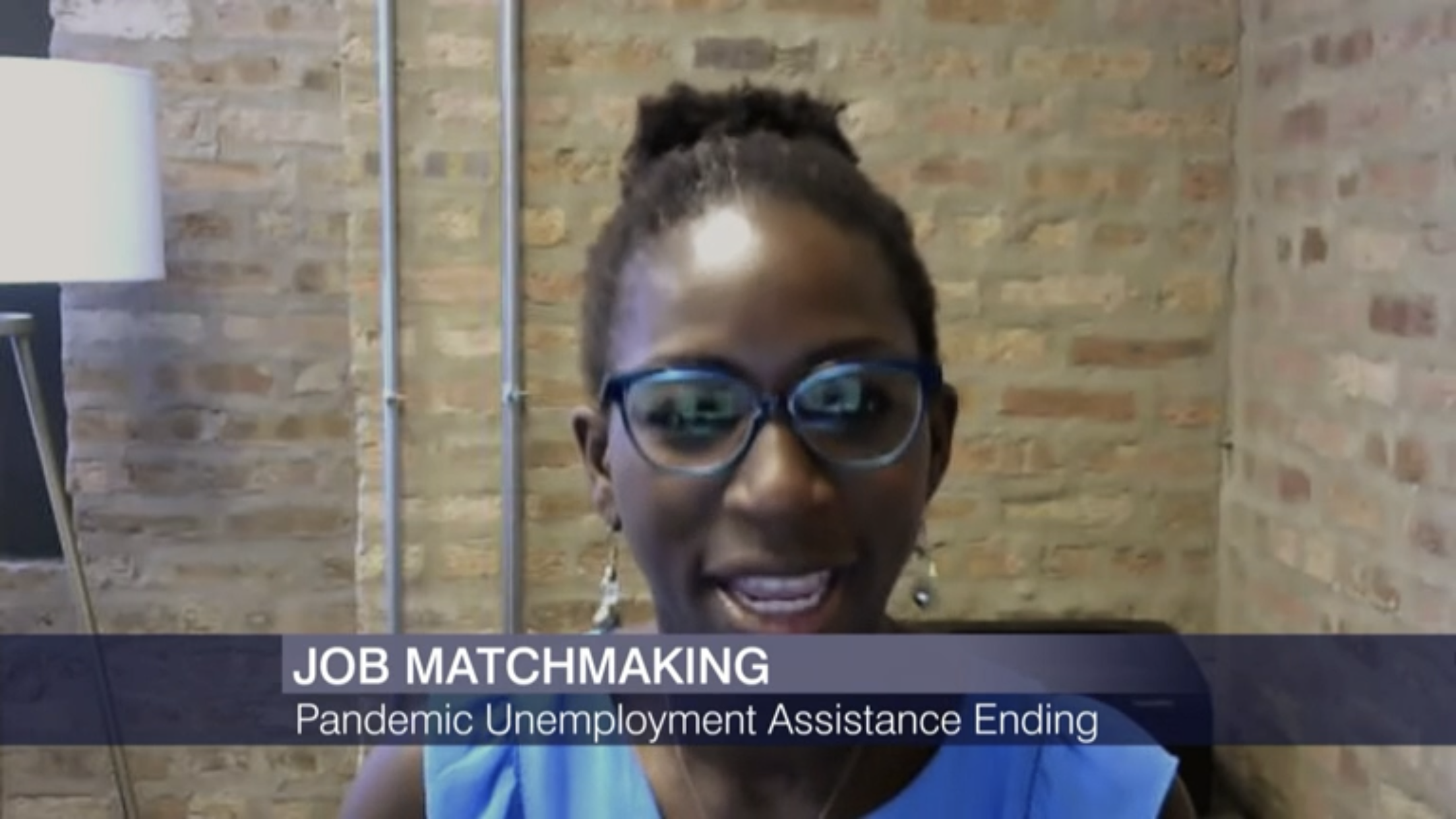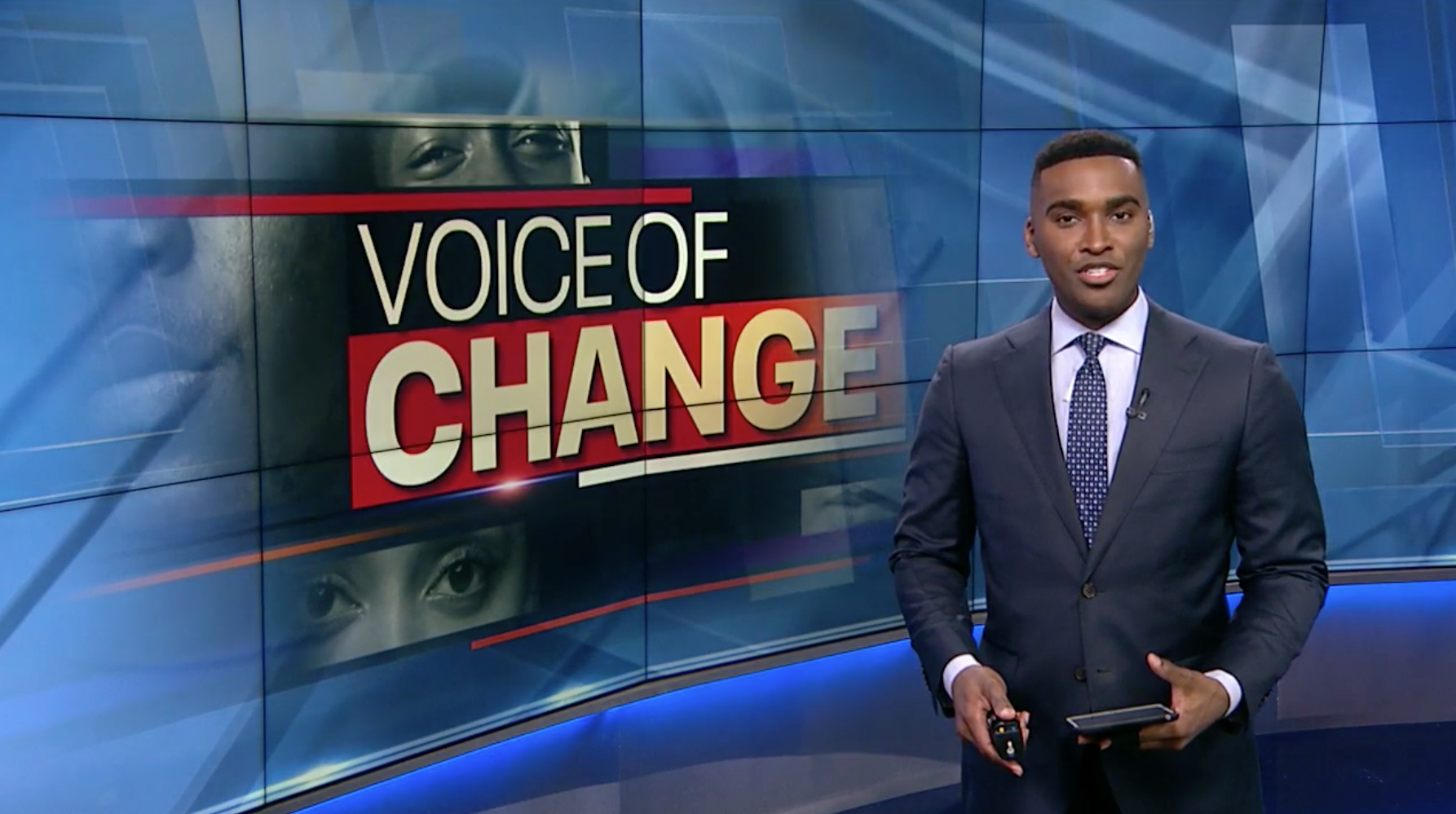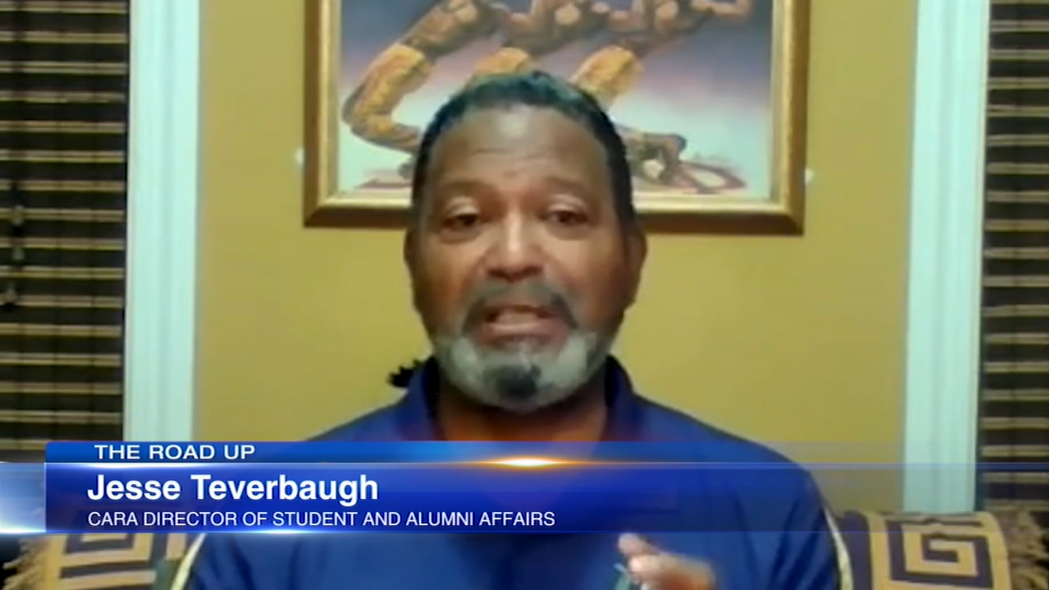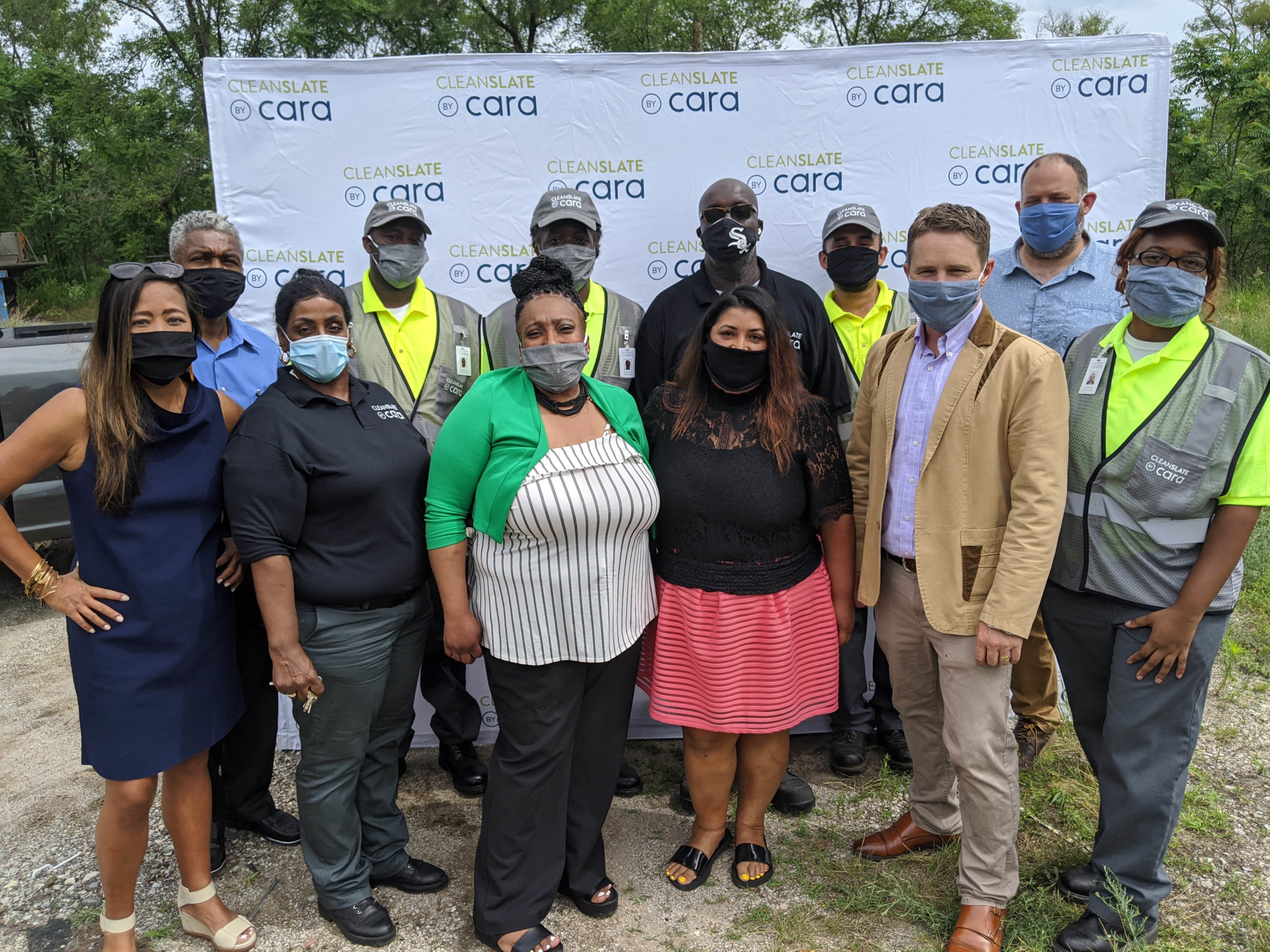Pandemic Unemployment Assistance Set to End, Organizations Work to Bridge Employment Gap

Click here to view the full article and video
Unemployment has been a major issue throughout the pandemic.
Stay-at-home orders and supply stresses caused layoffs. Fraudsters took advantage and exploited the system. Those who needed help had trouble accessing it: Hotlines were overburdened, and COVID restrictions meant state unemployment offices remained closed.
The Illinois Department of Employment Security kept its offices closed, in part because of security threats from people apparently furious about it all.
That’s changing: IDES announced last week that it’s opening three job centers including one in Harvey, and announced Wednesday that another three centers will be open to those who pre-book appointments, including a center in Pilsen.
It comes as certain business owners are desperate for employees.
The Illinois Retail Merchant Assocation’s Rob Karr said grocery stores have resumed normal operations, but customers now also expect pickup service, which has proven to be more labor intensive than originally assumed.
It’s similar for shops and restaurants.
“We’re seeing signs everywhere about narrowing hours or closing on certain days,” Karr said.
It’s expected that some of those hiring issues will lessen as extended unemployment benefits, pumped up because of the pandemic, will expire Sept. 4. That includes supplemental payments of $300 a week and benefits for gig workers normally not eligible. Other benefits will carry through Sept. 11.
There’s debate over whether the benefits are keeping away individuals who’d normally be applying for open positions.
A Wall Street Journal analysis found that job-growth is on par for states — Illinois among them — that continued the extended pandemic assistance until Federal Reserve’s September deadline, and those that ended the boosts earlier.
Karr said it’s hard to measure, though, because some states had less expansive shutdowns throughout the pandemic, whereas others, like Illinois, instituted tighter pandemic mitigations and restrictions.
President of the Cara Collective, Kathleen Caliento, said there may be a lot of reasons someone is unable to work or to return to work.
Cara Collective’s mission is committed to connecting employers with job seekers as means of eradicating poverty.
“What we’re seeing is because our participants are facing complex issues beyond unemployment, including health care, child care, perhaps even issues and challenges with the criminal justice system. Those issues continue to post barriers for our participants as they’re trying to enter into the workforce,” Caliento said.
Employers likewise may be putting up barriers, such as unnecessary job qualifications when they’re searching to fill open positions.
“You exclude essentially about 68% of Black and about 79% of Latinx populations when you put ‘must have college degree.’ And so that’s a question that we ask: Does it actually require a college degree? What in the college degree is required for an employee to be successful in this skill set?’” Caliento said.
Caliento said the Cara Collective is preparing for a return to in-office work, and an increase in those looking to be part of that comeback.
A Safe Haven Foundation is another nonprofit that takes a comprehensive approach to ending homelessness, including through job training and placement.
Co-founder and president Neli Vasquez Rowland said demand for services is at an unprecedented pitch.
She predicts a “reckoning” could be coming, with the end of increased unemployment benefits and the housing eviction moratorium ending in mid-September.
“(High unemployment and joblessness) is expensive for the entire ecosystem,” she said. “Every stakeholder loses when you have people that are not employed. It’s very expensive to our tax base to have to cover the cost of all the expenses of having people that are employable, if only we made the investment in them to get them employed.”
She said A Safe Haven is doing what it can to make sure people don’t fall through the cracks.
Sometimes that means serving as a sort of matchmaker for those who need work and those who need workers.
“As employers are aggressively trying to hire people and they’re finding a lack of applicants, we’re actually helping people that are seeking careers in those jobs,” Rowland said.
That can often mean providing more than job-skills training.
“We are working as fast as we can, working with as many employers as we can, because we do see the open positions. But just getting people job ready is part of the process that we do,” she said. “You can’t just take someone that’s in crisis and dealing with all of these underlying issues and getting their bearings and then put them in a job, when they’re dealing with a place to live and mental health issues and stress.”
Business groups have asked for Illinois to be more active.
A coalition of major business organizations including IRMA and the state and Chicagoland Chambers of Commerce sent a letter to Gov. J.B. Pritzker in late July citing their struggle to attract employees even as the state’s economy had largely reopened with pandemic restrictions phased out.
The letter said even with bonuses, higher wages and other steps, employers were unable to compete with the extended benefits.
“Before we lose any more economic ground, now is the time to reinstate normal unemployment insurance operations,” the letter said.
One ask: Using some of the remaining billions in Illinois’ share of American Rescue Plan Relief Act money to help shore up a deficit in the state’s unemployment trust fund — the fund that pays for unemployment benefits — that ballooned during the pandemic as out-of-work Illinoisians claimed benefits.
Karr says the fund’s facing its largest deficit ever, more than doubling to $4.7 billion.
The only other options to pay that debt down: Reducing benefits and raising taxes on businesses.
“Employers did their part, right – they suffered shutting down. Employees suffered shutting down. Employees’ benefits shouldn’t be cut. Employers shouldn’t have additional taxes placed on them. They did their part during the pandemic. It’s not as if it’s a ‘normal’ recession that was brought about by other economic factors,” Karr said.
Illinois lawmakers intentionally left billions of ARPA money unspent given that the feds expect it to last longer than a single fiscal year.
There’s pressure to use the money for any number of needs, and decisions won’t be made until fall at the earliest.
Another demand in the letter appears to be void at this point:
Business groups had asked for Illinois to reinstate a requirement that those receiving unemployment benefits continue to search for work by registering on the state’s IllinoisJobLink.com website.
“Unemployment insurance was never supposed to be an end. It is supposed to be a means of bridging someone from one job that they lost to another, even if it means learning new skills,” Karr said. “And so I think by having that work search requirement, the thought that was put in place decades ago, was that it encourages you to keep walking across that bridge.”
A spokesperson from IDES said as of Aug. 1, the state reinstituted the JobLink registration requirement for individuals submitting unemployment insurance claims.
Meanwhile – a state audit published in July found that IDES didn’t have proper checks in place as it awarded pandemic unemployment assistance benefits.
“Failure to accurately document PUA eligibility resulted in potentially ineligible claimants receiving benefits totaling” nearly $160 million, the audit found.
A bipartisan legislative commission voted to conduct another, more extensive audit into IDES’ handling of the pandemic unemployment benefits.
“We all realize in the first few months of the pandemic everyone was drinking water (from) the proverbial fire hose, but this is, this is outrageous,” State Sen. Chapin Rose, R-Mahomet, said of audit findings showing benefits awarded without proper controls.
The Pritzker administration has taken other measures that could help to ease the employment gap, including expanding and making permanent financial assistance for low-income families in need of child care.
Cara Collective’s Caliento said the latest surveys show private payroll hasn’t increased at the levels expected, meaning that gap does persist.
The latest state and federal data put Illinois’ unemployment rate in July at 7%. That’s lower than the 12.4% in July 2020 – when pandemic restrictions were at a peak, but higher than the national rate of 5.4%.
Caliento said it’s clear that this is a job-seekers’ market, and those looking for employment are in the position to take positions that offer quality wages, perks, and supports child care and flexibility.
Helping those without jobs get gainful employment is “about work, but it’s not just about the work,” Caliento said.
“It’s about the power and purpose that comes from a job,” she said. “At Cara we’re obviously about more than helping folks find jobs, we’re about helping them find themselves. Helping them understand who they are is one of the critical pieces of work that we do.”


